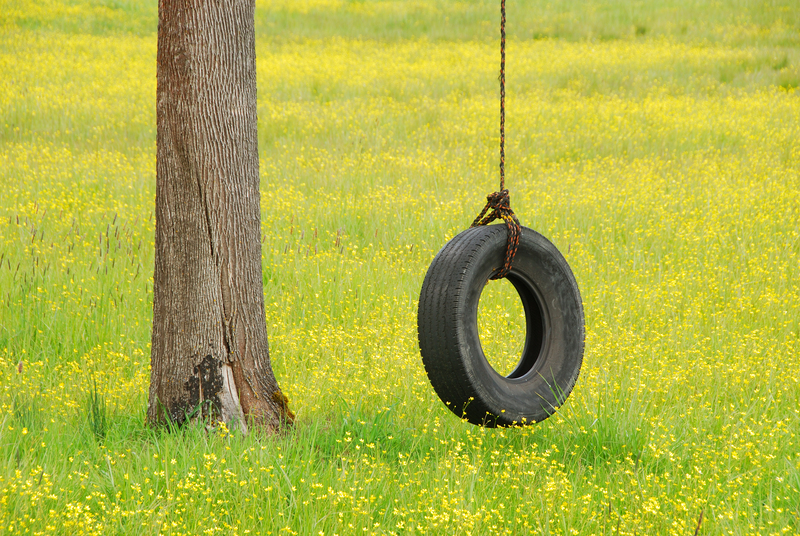The Savvy Homeowner's Guide to Saving Money on Bulky Waste
Bulky waste disposal can be an overwhelming and costly undertaking for homeowners. Whether you are clearing out an attic, renovating, landscaping, or simply decluttering, dealing with large, unwanted items requires strategy, awareness, and a little insider knowledge. Fortunately, you don't need to break the bank to get rid of your old sofas, mattresses, appliances, and other heavy duty items. This comprehensive guide will equip you with all the necessary tools and tips to become a true savvy homeowner, saving both money and hassle when it comes to bulky waste removal.
What is Bulky Waste?
Bulky waste refers to items too large or heavy for regular waste collection services. This typically includes:
- Old furniture (sofas, beds, wardrobes)
- Mattresses and box springs
- Large appliances (refrigerators, washing machines, stoves)
- Carpets and rugs
- Garden debris and branches
- Bicycles, grills, and other outdoor equipment
- Construction and renovation debris (limited inclusion, varies by area)
Knowing what qualifies as bulky waste is crucial because it determines your available options for disposal, as well as helps you avoid fines or extra charges.

Why Can Bulky Waste Removal Be Expensive?
Getting rid of large unwanted items often comes with associated costs due to:
- Special handling and transport requirements
- Higher landfill and recycling center fees
- Limited municipal collection services (sometimes only annual or per-appointment, often with strict regulations)
- Time and labor involved in loading, moving, and disposing
However, with a little research and planning, you can reduce or even eliminate most of these costs.
Top Tips to Save Money on Bulky Waste Disposal
1. Take Advantage of Free Local Collection Days
Many municipalities offer free or low-cost bulky item collection days. Check your local government's website or call your waste management office for schedules and rules. Make sure you understand:
- What items can and cannot be placed curbside
- Limits on the quantity of items
- Whether you need to schedule or register in advance
*Tip: Set a calendar reminder for these collection days to avoid missing out and incurring commercial pick-up fees.
2. Sell or Donate Usable Items
Before considering disposal, evaluate if your bulky waste still has value. Many charities, thrift stores, and second-hand shops accept gently used furniture, appliances, and even mattresses. Key options include:
- Habitat for Humanity ReStores
- Salvation Army or local charities
- Online marketplaces (Facebook Marketplace, Craigslist, OfferUp)
Many organizations offer free pick-up services for donations, saving you money and helping your community at the same time.
3. DIY Hauling to Save on Pickup Fees
If you have access to a truck or trailer, hauling your bulky waste directly to a landfill, transfer station, or recycling center often costs much less than using a private collection service. Tips for saving:
- Call your local waste facility to inquire about residential rates and accepted items
- Compare transfer station fees to private hauler quotes
- Ask neighbors if they have bulky waste to share or split truck rental costs
4. Upcycle or Repurpose What You Can
Get creative! Some bulky items can be given a new lease on life. Examples include:
- Turning an old door into a garden bench
- Transforming pallets into vertical planters or furniture
- Using broken tile for mosaic projects
- Repurposing mattress springs as wall art or memo holders
Upcycling not only saves you disposal fees, but can also add charm and individuality to your home.
5. Pool Resources with Neighbors
Renting a dumpster or using a bulky waste removal company can be cost-effective if you share the expense with a group of neighbors. This strategy cuts the cost per household and helps foster neighborly cooperation.
6. Investigate Appliance Recycling Programs
Many energy companies and manufacturers offer free pickup and recycling for old refrigerators, air conditioners, and washing machines, sometimes with added rebates or discounts on new purchases. Research:
- Utility company appliance recycling initiatives
- Manufacturer trade-in or recycling incentives
- State-run e-waste or white goods programs
7. Know What Can Go in Bulk Trash
Different municipalities follow different guidelines as to what constitutes bulky household waste. Review your city's official information for details. Common restrictions may include:
- No hazardous materials (paint, solvents, chemicals)
- No construction debris (concrete, drywall, bricks) in regular bulky collection
- Specific limits on number, size, or weight of items
Avoiding these mistakes can save you from costly fines or rejected pickups.
How to Organize an Efficient Bulky Waste Removal Project
Step 1: Sort and Separate
Divide your clutter into the following piles:
- Donate or sell
- Upcycle or repurpose
- Dispose through curbside pickup
- Self-haul to landfill or recycling center
Step 2: Check Your Local Rules
Research and note the specific bulky waste disposal guidelines for your area. Make sure you understand:
- Service dates for curbside collection
- Accepted and prohibited items
- Booking procedures or required permits
Step 3: Plan Your Logistics
Arrange for trucks, helpers, moving gear (such as dollies and straps), and coordinate donation pick-ups ahead of time. This will help you complete the job smoothly and avoid last minute, expensive solutions.
Step 4: Maximize Efficiency
- Break down furniture and large items to decrease volume
- Fill containers or truck beds strategically to fit more per trip
- Remove doors from fridges and dishwashers for safer disposal
- Double-check pick-up schedules to avoid items sitting curbside too long (may result in fines)
Frequently Asked Questions about Bulky Waste Disposal
What are the cheapest options for disposing of bulky items?
The most budget-friendly methods are to utilize municipal free collection days, donate usable items to charities, or haul items yourself to the landfill or recycling depot. Only resort to private junk removal companies when necessary.
Can I leave large items beside my regular garbage?
Never assume this is allowed! In most areas, unauthorized placement of bulky garbage beside bins can result in fines or service refusals. Always verify with your local waste service provider.
Do I need to separate recyclables from ordinary bulky waste?
Yes. Appliances, electronics, and metal objects are often recycled separately. Many towns require mattresses to be kept dry so they can be recycled instead of landfilled.
How do I find a reliable, low-cost bulky waste removal service?
Request several quotes, check online reviews, and verify that the company is licensed and insured. Local Facebook groups can also provide recommendations and sometimes even direct help.
Is it possible to get rid of bulky waste for free?
Yes, in certain situations. If items are in good condition, post them online as "free for pick-up," take advantage of municipal free collection events, or find non-profit organizations that will accept donations and provide free pick-up.
Smart Strategies for Reducing Bulky Waste in the Future
- Buy quality items that last longer and can be repaired or resold
- Consider multi-use furniture with modular or convertible features
- Borrow, rent, or share items you only use occasionally (ladders, lawn equipment, etc.)
- Before purchasing, research recyclability and disposal options
- Try to keep packaging and components together for easier resale or donation later
- Opt for items made from recyclable or repurposable materials

Eco-Friendly Bulky Waste Disposal: Good for Your Wallet and the Planet
Every time you opt to sell, donate, or recycle instead of disposing in a landfill, you help reduce the burden on waste systems and lower overall environmental impact. Many towns and private organizations are innovating in the reuse and recycling of big, heavy waste items, meaning your sofa, appliance, or mattress could have a second life.
Summary: Be a Savvy Homeowner and Keep More Money in Your Pocket
Dealing with bulky household waste doesn't have to drain your bank account or the planet's resources. With a combination of smart planning, community resources, diligent research, and a little creativity, you can save significantly--sometimes even making money--during your next big clear out.
- Plan ahead and utilize free collection days
- Donate, sell, or upcycle whenever possible
- Pool resources with neighbors for larger jobs
- Stay updated on local rules and programs
- Choose eco-friendly disposal methods for long-term savings
The next time you face a pile of bulky waste, use this guide to handle it efficiently, inexpensively, and sustainably!
Share Your Experience
Have a great tip or story about bulky waste removal on a budget? Share your advice in the comments and help other readers become savvy homeowners, too!
